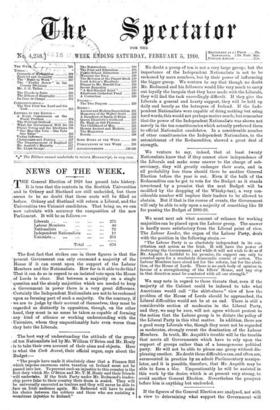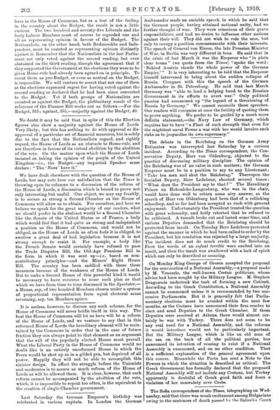If the figures of the General Election are analysed, not
with a view to determining what support the Government will have in the House of Commons, but as a test of the feeling in the country about the Budget, the result is not a little curious. The two hundred and seventy-five Liberals and the forty Labour Members must of course be regarded one and all as representing opinion in favour of the Budget. The Nationalists, on the other hand, both Redmondite and Inde- pendent, must be counted as representing opinion distinctly against it. Remember that the Nationalists in the last Parlia- ment not only voted against the second reading, but even abstained on the third reading, though the agreement that if they supported the Government at the elections they were to be given Home-rule had already been agreed on in principle. To count them as pro-Budget, or even as neutral on the Budget, is impossible. We will venture to assert that not one of them at the elections expressed regret for having voted against the second reading or declared that he had been since converted to the Budget. Yet if both groups of Nationalists are counted as against the Budget, the plebiscitary result of the reference of the Finance Bill works out as follows :—For the Budget, 315; against, 355,—majority against the Budget, 40.











































 Previous page
Previous page